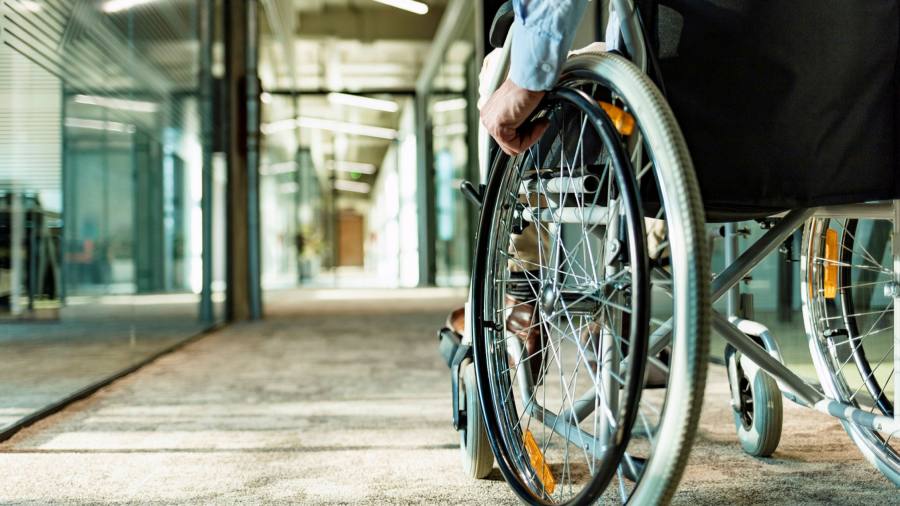[ad_1]
The UK’s failure to protect those with learning disabilities from coronavirus deserves to be a national scandal. The pandemic has consistently demonstrated who societies have ignored: whether poorly protected workers in the meatpacking industry, immigrant workers in cramped dormitories or, in many European countries, residents of care homes. As more data from the first stage of the pandemic becomes available it is clear that people with disabilities belong on that list too.
A celebratory mood over the success to date of Britain’s vaccination programme should not distract from the Conservative government’s record of failure in protecting many of the most vulnerable. Relief and excitement over the chance to end lockdown policies is understandable but those who have died deserve a thorough accounting of Britain’s failures. The country must learn from this experience, prioritise their needs and rectify decades of neglecting disabled people.
According to analysis of official statistics, published last week, people with disabilities accounted for 60 per cent of those who died during the first wave of the pandemic — between March and November 2020. This will include many older people classified as disabled but the increase in mortality among younger people is particularly shocking: in the 18-34 age group the rate was 30 times higher for those with a learning disability. Certain disabilities can make people more vulnerable to respiratory illnesses but the single biggest factor was living in a care home, followed by economic disadvantage as well as prior health conditions.
Like the broader tragedy of high death rates in care homes — which, for example, Belgium and Spain also suffered during the first wave — this is not a uniquely British problem. Data from the US shows that those living with learning disabilities were much more likely to die from the virus. A study in California found that this was limited to those in residential care homes; people living in their own or a family home were less likely to contract the virus.
The scandal does, however, highlight a longstanding British failure. The country’s social care system, in crisis before the pandemic, is usually associated with the elderly. But it has equal responsibility for the — often ignored — learning disabled. The increased demand for care comes partly from these younger adults: their rising life expectancy as well as the ageing of their parents, many of whom were carers, has meant more of this group are the responsibility of the state. The UK spent around £5.1bn on long-term care for working age adults with learning disabilities in 2018/19, more than for older people with physical problems.Â
This long-term challenge was compounded by a litany of failures during the first stage of pandemic — from releasing people from hospitals back to care homes without a negative test to prioritising deliveries of personal protective equipment to the health service, leaving many care homes without. Most tragically, a December report from the Care Quality Commission, which has responsibility for regulating the sector, found that many of those with learning disabilities had their files inappropriately labelled “do not resuscitate†as hospitals were overwhelmed.
The decision to move those with “severe and profound†disabilities higher up the vaccine priority list, in response to research about the most vulnerable during the first wave, is welcome but this should be extended to all those in residential care — not only in the UK but also elsewhere. The state failed to protect many of the most vulnerable during the first wave; it must not do so again.
[ad_2]
Source link





